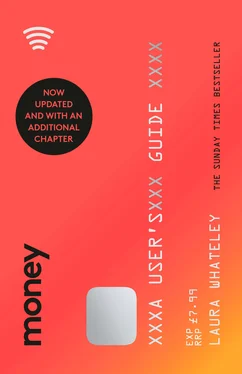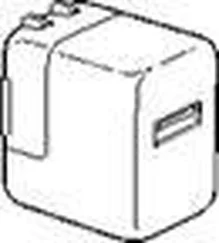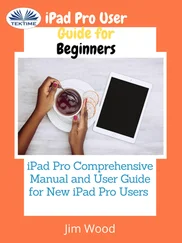How to improve your credit history
If you were going to lend someone several hundred thousand pounds you would want to know a bit about how likely they were to pay you back, based on how well they had paid other people back in the past. You might be equally reluctant to lend to them if you had no evidence of their reliability because they had never borrowed from anyone before. What people do not realize is that although debt is portrayed as something you should generally avoid, having no credit history is as bad as having a faulty one. Banks need something to go on.This can be a problem for young first-time buyers whose only experience of financial products is their bank account and children’s saver they signed up to when they were twelve, or for people moving here from abroad who leave their credit histories behind in another country.
What it is useful to do, ideally at least six months before you apply for a mortgage, is create a wholesome credit portrait of yourself and, if you have no credit history, start borrowing small amounts to build one up. Start by checking your credit record through one or all of the three main credit-reference agencies mentioned above: Equifax, Experian and Transunion. You can do this free, though be warned that you only get it free by signing up for a free trial period, after which you start to get charged automatically. Many people are caught out by this, so unsubscribe as soon as you have your score. ClearScore lets you check your Equifax report free ‘forever’.
I recommend that you check the credit-reference agencies at least six months before you start to apply for a mortgage, so that you have time to sort it out if it’s poor, but it’s worth doing even if you intend to apply for a mortgage next week.
• MAKE SURE YOU ARE ON THE ELECTORAL ROLL
This is essential. If you are not you won’t get a mortgage. Banks use the electoral roll to check you are who you say you are. Make sure your name is spelled right, all your address history is correct and up to date, and that you are registered to vote at the same, most recent, address.
• GET A CREDIT CARD AND USE IT IN A CHILLED-OUT MANNER
If you have a poor score because you have not had credit in the past, take out a credit card and use it for day-to-day shopping for a few months. Set up a direct debit to clear if off in full every month. Don’t just pay the minimum payment, but don’t max it out either: the perfect amount of spending is about 10 to 30 per cent of your credit-card limit. It demonstrates that you can borrow sensibly without losing the plot with all this lovely free money. A monthly credit-card balance below 30 per cent can gain you 90 points on your credit score, according to Experian, which scores from 0 to 999. A score of around 780 is fair, one of above 961 or higher is excellent. A card balance above 90 per cent will cost you 50 points.
• ADD RENT TO YOUR CREDIT HISTORY
You can now ask for rental payments to be added to your Experian credit score to demonstrate that you are a reliable rent-payer. Not all banks take this into account yet, but there are hopes that this will slowly start to change, so it is worth doing.
The Rental Exchange scheme records your rental payments and sends the results to Experian. You need to actively sign up to do this by paying your rent through a company called Credit Ladder, which then passes on your money to your landlord or letting agent, so run this past your landlord to check that they are happy with it first. Equifax and Callcredit don’t yet consider rental payments.
• DON’T APPLY FOR OTHER STUFF
Don’t be over-keen. Applying for too many accounts and loans in a short space of time does not go down well. If you can, avoid applying for anything (mobile phone, credit card, bank account) within six months or so of applying for your mortgage.
Break any links to ex-partners and former flatmates with whom you have shared joint accounts or joint bills. If you are still wrongly linked on your report, contact all three agencies to ask them for a ‘disassociation’. Contrary to popular belief, just living with someone else who failed to pay their bills on time will not damage your credit file, but if you were financially tied to them then their poor credit history will reflect negatively on yours (conversely their excellent credit history reflects well on you). Bear this in mind before you open any kind of joint financial product.
• PAY ALL YOUR BILLS ON TIME
Make sure you do not default on any household bills. Credit reports include information from, for example, your gas, electricity, insurance and water supplier. Any defaults, even if you failed to pay just £5, stay on and damage your report for six years.
Missing your last payment on an account will cost you about 130 points according to Experian; receiving a default, when an account is passed to debt collectors, or getting a court judgement, will cost you more than 250 points. These things fade over time, though: after three years you will lose fewer points for them. If there are any mistakes on your report, or any defaults that you think are unfair or misrepresent you, then you can ask the credit-reference agency to investigate them and add a note of up to 200 words (known as a notice of correction) on your file to put them right. Lay out why you feel they are unfair, or why your circumstances have changed. For example, you might write that you missed a bill because you had lost your job, but you are now fully employed and back to paying bills on time.
• REDUCE YOUR DEBTS (BUT DON’T WORRY ABOUT STUDENT LOANS)
Pay down any debt you have as much as possible before applying for a mortgage: lenders will look at your ‘balance trend’ as part of credit scoring. This does not include student loans. Arguably you would be better off boosting your deposit than using savings to pay down any student loan. See the next chapter for more on why.
There have been stories that banks take what you post on social media into account. This is hard to prove, but Andrew Montlake, of the mortgage broker Coreco, told me that he would suggest those looking to apply for a mortgage should be careful about what they share. ‘Gambling stories, wild nights out and lavish spending boasts should probably be avoided.’ Also avoid sending or receiving cash to your bank with ‘banterous’ references. Banks have rejected people based on ‘drug money’ appearing on their statements, even if it is obviously a joke.
• DO NOT GET A PAYDAY LOAN
For some banks payday loans are also an absolute credit-score killer. Some banks will not lend to you at all if you have taken out a payday loan, others are less fussed. But best not to go anywhere near a payday loan at least a year before you apply for a mortgage if you can help it. Ideally never go anywhere near a payday loan.
• BE WARY OF BUY-NOW-PAY-LATER
You might have noticed that on most high-street online stores you don’t actually have to pay for your shopping immediately, thanks to buy-now-pay-later (BNPL) apps like Klarna and Clearpay. Misusing BNPL can, however, damage your credit score, so I’d avoid them, or at least treat them with a lot of caution if you are planning to apply for a mortgage any time soon.
• GET A COPY OF YOUR OLD REPORT IF YOU HAVE MOVED TO THE UK FROM ABROAD
Читать дальше












